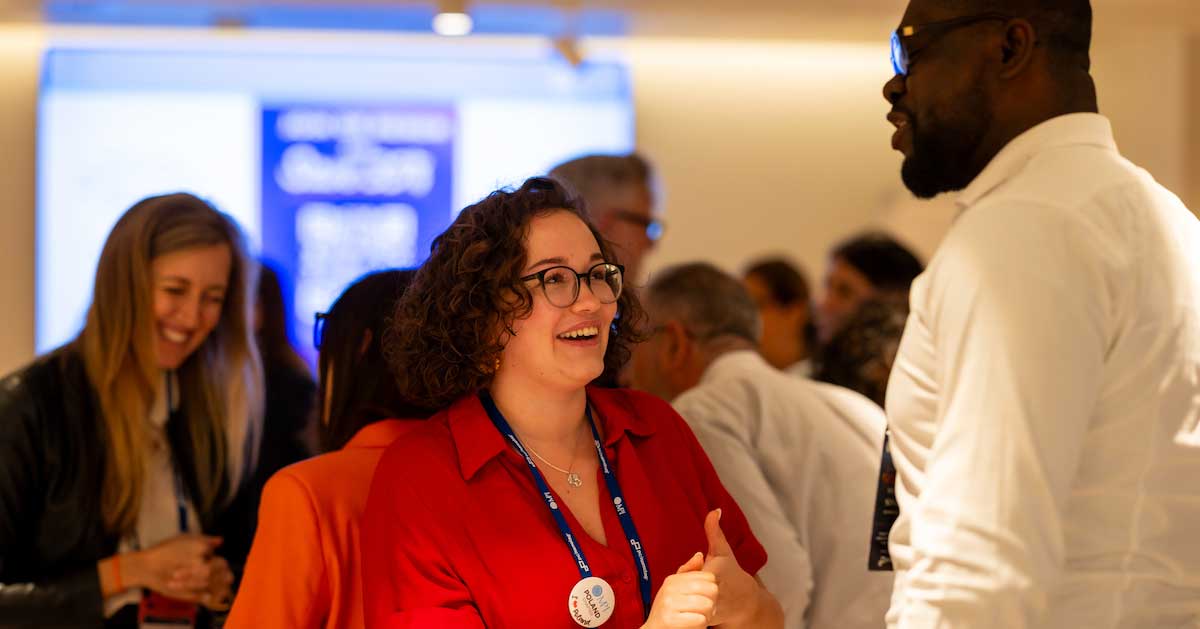Alicia Schiro, owner of Aced It Events in New York City, spent a good portion of her time in early March helping her clients change plans for their meetings.
“I’m renegotiating every contract I have until June, to postpone them to the September timeframe,” Schiro said.
Fortunately, she has found venues to be cooperative; the meetings were for less than 100 people, and none required cancellations.
“Everyone wants to work with each other,” Schiro said.
But, like many event planners, she has not been able to mitigate all of the effects of the coronavirus crisis.
“The problem is no one is booking right now,” she said. “My sales in the last two months are down 51 percent.”
Still, Schiro is trying to remain optimistic.
“Let’s say on the hopeful side of things, come June people will say, ‘Let’s get some stuff on the calendar for September, October, November or December,’” she said. “The advice I’m giving my clients is we need to be thinking about those dates. By that time, everyone will think, ‘Let’s book,’” and there won’t be available dates.”
The entire global meeting industry is feeling the impact of the coronavirus. Now that governing bodies and health organizations around the world are advising or mandating that gatherings of varying sizes not go forward (such as the U.S. Centers for Disease Control and Prevention recommending no events of 50 or more take place for the next eight weeks) and some cities, states and countries are essentially on lockdown, the shockwaves in the meeting industry are palpable.
As SXSW’s organizers put it in a written announcement after the city of Austin cancelled the event: “We are devastated to share this news with you. ‘The show must go on’ is in our DNA, and this is the first time in 34 years that the March event will not take place. We are now working through the ramifications of this unprecedented situation.”
Many more cancellations and postponements will follow, given the Trump administration’s travel ban on European countries, airlines cutting capacity and actions by governments around the world to curtail the coronavirus pandemic.
While it’s too soon to know the exact financial toll of all of the cancellations, SXSW alone contributed US$356 million to its local area in 2019, according to Greyhill Advisors, a consulting firm. Local restaurants, hotels and even Uber drivers are affected when an event does not take place.
Some large hotel chains such as Hilton, Marriott, InterContinental Hotels Group and Omni Hotels & Resorts are waiving cancellation fees for existing bookings around the world through the end of April because of the coronavirus crisis. For U.S. hotels, RevPar (revenue per available room) was down 11.6 percent in the first week of March, according to hotel data firm STR.
MPI surveyed members about the impact of the coronavirus in March to find out if they had experienced cancellations, to what extent they think the virus will affect their business and how they have adapted their sales strategy.
Blue Man Group in Orlando was fielding some requests to change dates of attendance in early March, according to respondent Mandi Jacobs (MPI Greater Orlando Chapter), group events and sales manager for Blue Man Group live at the Universal Orlando Resort.
“It was people wanting to move to a later date, and wanting to move closer to May or June,” she said.
Many of the calls the group has gotten have been to inquire about refund policies, she said. Generally, Blue Man Group does not give refunds to groups that have paid for seats, but it has made an exception for those affected by the coronavirus, such as those banned from traveling.
In the meantime, Blue Man Group was not cancelling performances, she said, noting that Blue Man Group has always done an extensive cleaning after every show.
“We’re definitely taking precautions,” Jacobs added. “We’re cleaning a lot more. We have sanitizing stations everywhere. We’re upping that and making sure people feel safe when they come.”
At The Dessert Ladies, a commercial bakery in Stirling, N.J., that is a supplier to corporate events in New York and New Jersey, owners Geraldine Keogh and her daughter Lindsay Smith had to wrap 1,500 individual baked goods in clear plastic for a company’s 300-person anniversary celebration in early March with just 24 hours notice after the coronavirus story broke.
“We literally wrapped every single cupcake,” Keough said.
Many professional speakers have also been affected by the cancellations.
“Since I woke up this morning, I had three events I was supposed to speak at cancelled,” said Elena Joy Thurston, a professional motivational speaker who specializes in the LGBTQ+ sphere, when reached the second week in March. “Two were next week. Those were just cancelled. The next one, on May 2, they will push to June 6, in the hopes everything will have calmed down by then.”
Thurston was taking a proactive approach.
“I’m reaching out to the local community: ‘If you have a training and your speaker can’t get here, you have the speakers available in your own backyard,’” she said.
Although Thurston says she spent a little while feeling like a victim of circumstances, she decided to reframe her mindset.
“What I preach is mindfulness and self-awareness,” she said. “I was able to catch myself and release the victim status. I realized this can be an opportunity.”
Thurston is now looking into virtual events, as she tries to anticipate the needs of meeting organizers and planners.
“If I were a meeting planner right now, I would be looking for speakers and trainers who have done a lot of video work—a lot of Facebook lives and Instagram lives, where they know the technology, are comfortable with it and know how to engage it,” she said. (Learn more about livestreaming options for events.)
She may be onto something. Meeting planner Schiro said she’s been discussing opportunities for clients to hold virtual events.
“One of my clients wants to do a wine tasting,” she said. “Maybe they will ship the wine out to their clients, with each individual doing a wine tasting.”
It may not be the same thing as doing it in person, but for the foreseeable future, in-person wine tastings may not be an option.
Visit MPI’s coronavirus resource page for the latest news and online education that will help you navigate this crisis and better prepare for the next one.







